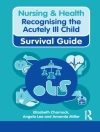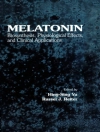Temporal Bone Dissection Guide – FIVE STARS from Doody’s Star Ratings™
The second edition of this indispensable guide provides a step-by-step approach to learning the anatomy and principal procedures of temporal bone dissection starting with mastoidectomy and including approaches to the internal auditory canal and jugular foramen. The renowned authors share their collective wisdom and pearls gleaned from years of treating patients with temporal bone disease and teaching these methodologies to medical students, residents, and fellows. Procedural details are presented throughout 10 detailed chapters, accompanied by beautiful sequential illustrations and videos.
One of the most complex regions of the human body, the temporal bone and adjacent skull base present unique surgical challenges. Critical neurovascular structures traverse complex pathways through the temporal bone, which itself has highly variable anatomy. Tumors and erosive lesions create additional anatomical barriers that make effective access and resection of diseased areas difficult. At the same time, the surgical skills required to navigate this anatomy are indispensable to the management of ear disease and associated disability, and provide alternative approaches with less morbidity to intracranial pathology. This book presents technical and strategic considerations for safe and effective temporal bone surgery.
Key Highlights:
- Videos of cadaveric and surgical dissections highlight critical technical steps and appropriate execution
- More than 160 meticulous, expertly illustrated pen and ink drawings of progressive dissections
- A new chapter on middle ear endoscopy details key anatomical features and technical maneuvers integral to this approach
- New chapters on infratemporal surgical dissection and the intraoperative management of complications are also presented
- Expanded coverage of the middle fossa approa
Cuprins
<p>1 Introduction to Temporal Bone Dissection<br>2 Anatomy of the Temporal Bone<br>3 Mastoidectomy<br>4 Endoscopic Middle Ear Dissection<br>5 Labyrinthectomy<br>6 Translabyrinthine Exposure of the Internal Auditory Canal<br>7 The Middle Cranial Fossa Approach to the Internal Auditory Canal<br>8 Dissection of the Infratemporal Fossa<br>9 Skill Transfer to the Operating Room, Including Management of Complications<br>10 Achieving Mastery in Temporal Bone Dissection: Role of Deliberate Practice and Formative Feedback</p>












